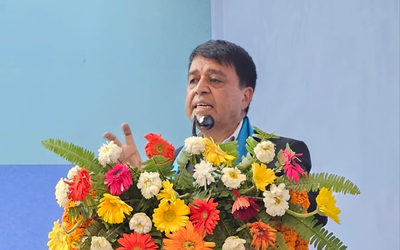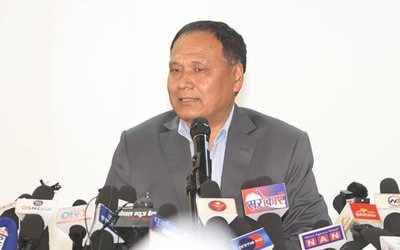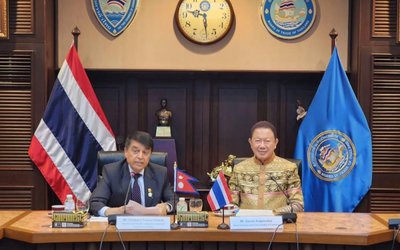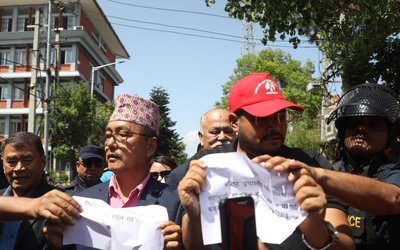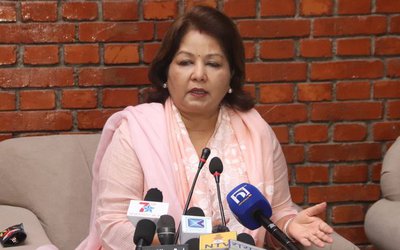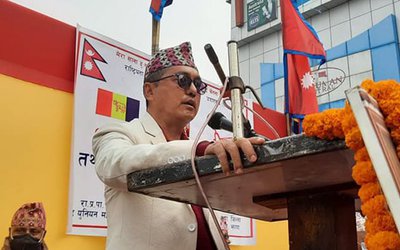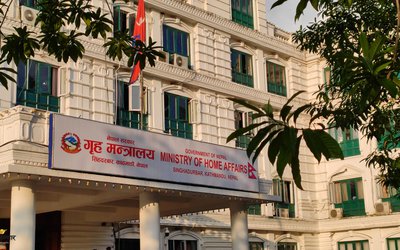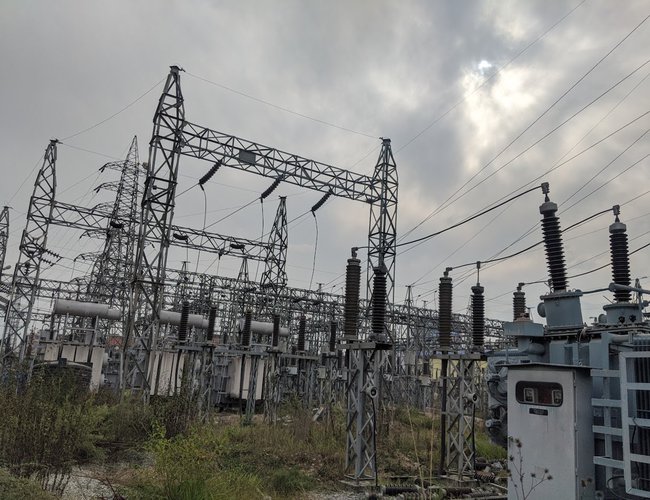
This year's recent floods and landslides have taken huge toll on the production of electricity. At least 1,100-MW hydro electricity has been thrown out of the systems with the obstruction to its production and transmission. The transmission line and distribution systems of hydropower projects have turned complicated. The capacity of the stalled projects is estimated to be equivalent to 650 MW.
Nepal Electricity Authority (NEA) said it would be difficult to meet the demand as most of the power stations were closed in the disaster-triggered emergency.
According to preliminary reports of the Ministry of Energy, the incessant rain induced floods and landslides have damaged 36 projects having power generation capacity of 1,100 MW.
The Kabeli Corridor projects, which meet the energy demand of eastern Nepal, have been damaged in the calamitous incidents of floods and landslides. Around 200 MW of electricity has been thrown out of the systems after damages caused to three towers of the transmission line.
Similarly, a tower of Khimti Lamosanghu transmission line, which supplies electricity from the Tamakoshi Corridor to Kathmandu, has been washed away by the Tamakoshi River. Electricity worth 200 MW has gone out of the systems due to complications in the transmission line.
Khimti Dhalkebar has generated a 220 KV tower. Similarly, the tower of Bardaghat-Sardi 132 KV double circuit transmission line got collapsed due to incessant rain.
According to the NEA, the tower of the transmission line was collapsed with the collapse of the road at Bardaghat municipality-5, Khursani Khola in Nawalparasi (Bardaghat Susta West) along the East-West Highway.
The power supply of Hongshi Shivam Cement, which is operating at Sardi in Binayi Triveni Rural Municipality of Nawalparasi (Bardaghat Susta East) in partnership with Chinese and Nepali investors, has been closed since Monday evening after the tower collapsed.
When a hydropower project is closed, it does not have an impact elsewhere, but when there is a problem in a tower, it has a wider impact.
Managing Director of NEA Kulman Ghising said it would be a big challenge to manage the demand due to obstruction caused to electricity supply.
Due to the damage to the access road, there is a problem in transporting construction materials. This year's flood has caused huge toll on roads and bridges.
This also prolongs the time of the project's maintenance and construction. Electricity would not be available within the stipulated time as per the agreement with NEA.
Energy Minister Deepak Khadka said necessary decisions would be taken after holding discussions with the Ministry of Finance on reconstruction, construction of access roads and insurance. The country's energy sector has been facing a huge blow for the last few years due to floods, landslides and rains.
More than a dozen substations and other physical structures of NEA were damaged due to incessant rainfall in 2074 BS. Similarly, floods and landslides in June 2078 BS had damaged one and a half dozen projects. The 44 MW Super Madi, which is under construction in Kaski, suffered a loss of around Rs 1 billion. The floods of Modi River had washed away equipment including dam site, power house, workers' housing house, loader excavator, penstock pipe and cocker plant.
That year's flood had caused trouble in Super Dordi hydropower project. The floods had also entered from the tailrace of Rasuwagadhi. The floods had wreaked havoc in Melamchi in the same year.
Although the hydropower projects have insurance, they have been facing problems in getting payment. Last year alone, the insurance claim payment amounted to Rs 7 billion. This year too, the liability is likely to go up.
Experts recommended improving the system and working style of pre-project studies, design and pre-construction forecasting system to address the problems caused by floods and landslides in the energy sector. (RSS)
- Invest Small Portion Of your earnings in Nepal, we will create an environment that will yield returns: Chairman Dhakal
- Apr 20, 2025
- RPP Leaders Demonstrated Inside Singhadurbar , Linden Arrested
- Apr 20, 2025
- Foreign Minister Dr. Deuba to head to Bangkok to chair UN Meeting
- Apr 20, 2025
- We Do, What We Say, The Government Will Not Be Afraid: RPP Leader Lingden
- Apr 20, 2025
- Home Ministry warns RPP: Action will be taken if it violates prohibited Areas
- Apr 20, 2025
